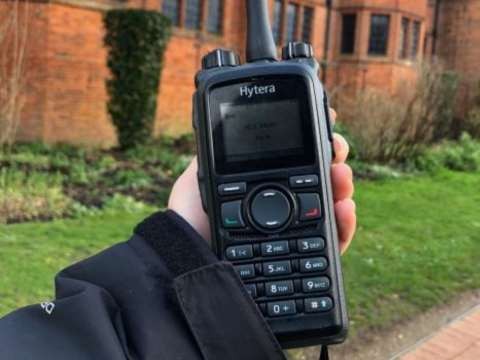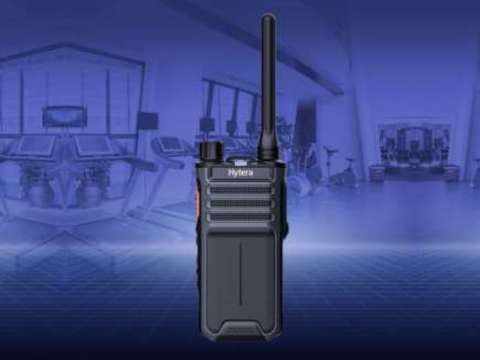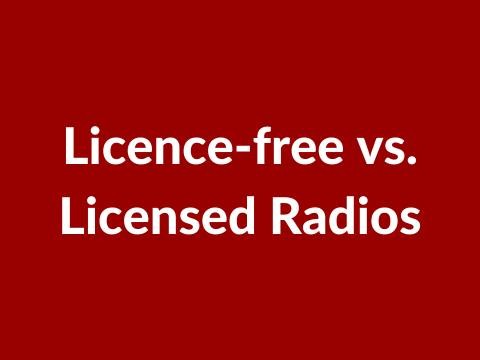Licensed radios vs. license-free radios
In today's connected world, radio communication remains a vital tool for various industries and applications. When it comes to radios, two primary categories exist: Licensed Radios and licence-free radios. Understanding the differences between these options is crucial. This article explores these differences to help you choose the most suitable solution for your specific needs.
Two-way radios provide instant communication and improve efficiency, safety, and productivity. When it comes to purchasing a radio, there is a lot of choice. If you're not familiar with radios, it can be overwhelming.
While licensed business radios are the right solution for many organisations, there are several excellent licence-free radios available too. We are exploring the differences between them. This knowledge will help you make an informed decision. To begin, let us clarify the ultimate difference between licensed and license-free radios.
Licensed Radios require a permit. This permit is issued by regulatory authorities. It grants exclusive usage rights to the licensee within a specific frequency range and geographical area.
Licence-Free Radios are radios that do not require a licence. They are able to operate in a pre-determined frequency band approved for general use.
Licence-Free Radios : What You Need to Know
-
Licence-Free Radios: Also known as “PMR446” radios, they operate on specific frequencies that do not require a licence to use. They are often used for personal or recreational purposes. Examples include families going camping or nursery schools. This enables more efficient staff communication.
-
Frequencies and Power Limitations of Licence-Free Radios: Licence-free radios operate on the PMR446 frequency band, which is predetermined. It has eight channels and a maximum power output of 500mW.
-
Licence-Free Radios have many uses. They are often used for personal communication, outdoor activities and by small businesses.
-
Advantages of Licence-Free Radios: They are easy to use, affordable and do not require a licence. This allows users to start communicating straight away within approved frequency bands. However, devices are only approved to use certain frequency bands. This can limit their range and cause interference with other devices using the same frequency.
-
Range & Coverage: Licence-free radios have a limited range due to their low power output and exposure to interference. However, offer simplicity and offer cost effectiveness so are a popular choice for small businesses, recreational activities and personal use. For convenient communication over short distances.
Licensed Radios: What You Need to Know
-
Licensed radios operate on specific frequencies that require a licence to use. They are often used in industries that require reliable and secure communication and where data encryption is critical (i.e. emergency services, events, buildings/facilities operators, and security officers.)
-
Users must obtain a radio licence to operate licensed radios. In the UK, this licence is obtained from Ofcom, the regulatory authority. Licences have specific requirements such as frequency, power output, and other operating conditions. They should be managed by a professional and will come with a cost.
-
Benefits and Advantages of Using Licensed Radios: Licensed radios offer increased coverage, range, and reliability compared to licence-free radios. They also have dedicated channels, reducing the risk of interference and providing better protection.
-
Industries using Licensed Radios: Licensed radios are commonly used in industries such as transportation, public safety, and healthcare. There reliable performance, extended range and secure communication make them ideal for critical operations.
-
To obtain a radio licence, one must complete an application and pay a fee. Additionally, they must meet the requirements set by the regulatory authority. Expert companies like 2826 Ltd offer technical two-way radio services. They can help with all aspects of the licensing process, from initial set up to ongoing management.
-
Licensed radios offer increased coverage and range potential due to their higher power output and dedicated channels. Coverage and range in both types of radios are affected by factors such as terrain, weather, and obstacles.
What About Privacy?
There are differences between licensed radios and licence-free radios when it comes to interference and privacy. Due to having exclusive dedicated channels, Licensed radios experience less instances of interference, ensuring clear and reliable communication. They also have dedicated and encrypted channels to ensure conversations are kept private.
In contrast licence-free radios can be susceptible to interference from other devices operating on the same frequency.
Power and Performance
Licensed radios normally have a higher power output than licence-free radios, which affects their signal strength and performance. Higher power output results in increased signal strength and better performance, especially in challenging environments. Both licence-free and licensed radios require proper power management and battery life to ensure optimal performance.
Regulations and the Law
Licensed radios must comply with specific regulations and operating conditions set by the regulatory authority (in the UK this is Ofcom.) This ensures fair usage and minimises interference. Licence-free radios can be operated without a formal licence and can operate on certain frequencies.
It is strictly prohibited and considered highly illegal to program more powerful business radios to operate on these frequencies. Business radios are intended to operate under an Ofcom licence. Unauthorised use of licensed radios may result in penalties, fines, and legal consequences.
Cost comparison
Selecting the right radio depends on one's needs. A cost-benefit analysis can assist in determining the best option for your organisation. For example:
Licence-free radios are affordable and do not require a licence. There is an initial investment made when purchasing the hardware and accessories, but that is it. They do, however, have limited range and may require additional accessories.
Licensed radios may require additional equipment and maintenance, increasing their initial and ongoing costs. They also require a licence which has a cost attached to it. Lease arrangements, such as 2826's Managed Services Programme, keep capital costs low. This allows businesses to have an affordable option when it comes to licensed radio solutions that are highly functional.
Top tips to choose the right type of Radio
We recommend considering several factors when choosing a radio. To decide if a license-free or licensed radio is the best option.
- Coverage
- Costs
- Interference and Clarity of Audio
- Security and Regulations
Some businesses try a licence free radio initially. The business needs may change over time. To meet these changing needs, the solution can be upgraded to a licensed version with extra security features. This will help users become more experienced with radios.
Conclusion
Licence-free radios are affordable and easy to use but can have limited range. Licensed radios offer increased coverage, range, function, and reliability, but require a licence and have higher costs. These radios are suitable for many applications and industries. Compliance and efficiency are key factors in choosing the right radio solution.
Whatever the case, compliance and efficiency are crucial in selecting the appropriate radio solution.
Ready to buy licence-free radios? Browse our licence-free radio store today, purchase online and have them shipped right to your door.
Need some help? Contact one of our experts today to discuss your requirements. We’d be delighted to help.
Request a Callback
Related
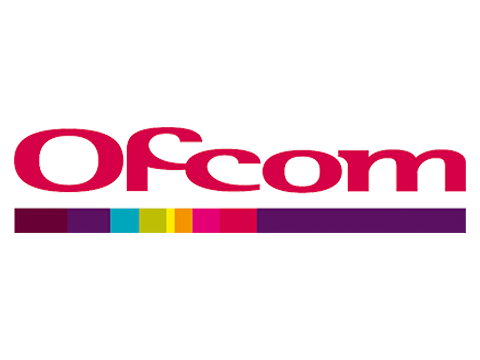
Ofcom Licence Management
To use any radio transmitting device in the UK, it will need to either be licensed, or have a specific licence exemption. Find out more about Ofcom licensing and all that it entails.
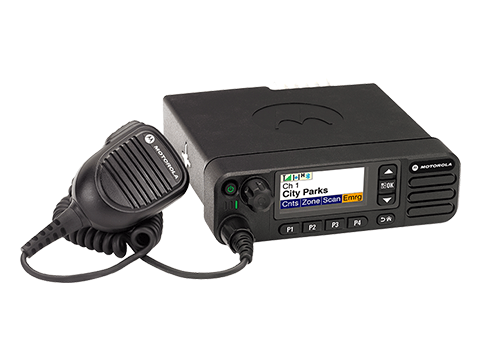
DMR - Digital Mobile Radio
DMR is an international open digital radio standard developed around 7 years ago by the European Telecommunications Standards Institute (ETSI).

